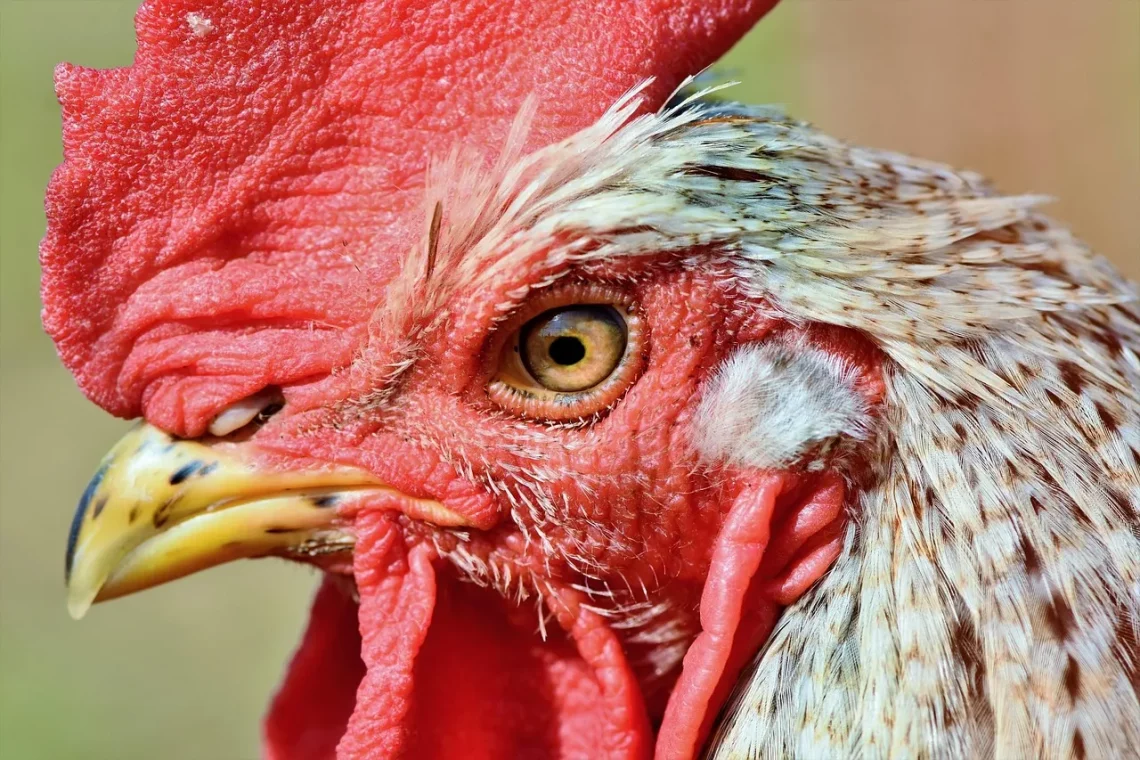
Can Chickens Eat Green Peas? A Guide to Chicken Nutrition
Chickens are fascinating creatures with unique dietary needs that can significantly impact their health and egg production. As omnivores, they thrive on a diverse diet that includes grains, seeds, fruits, vegetables, and protein sources. Understanding what foods are safe and beneficial for chickens is essential for any poultry owner looking to provide optimal nutrition. One such food that often raises questions among chicken keepers is green peas. These small, vibrant legumes are not only nutritious for humans but also offer potential benefits for chickens.
The nutritional landscape for chickens is complex, with various factors influencing what they can and should eat. Chickens have different dietary requirements at different stages of their lives, and their ability to digest certain foods may vary. It’s crucial to ensure that their diet is well-balanced, incorporating a mix of carbohydrates, proteins, fats, vitamins, and minerals. Feeding chickens the right foods can lead to healthier birds, improved egg production, and better overall well-being.
As we delve into the specifics of chicken nutrition, we will explore the role of green peas in their diet, how they can be safely introduced, and the benefits they may offer. Knowing how to incorporate various foods into a chicken’s diet will not only enhance their health but also the quality of the eggs they produce, making it vital for any chicken owner to stay informed.
Nutritional Value of Green Peas
Green peas are packed with essential nutrients that can be advantageous for chickens. They are an excellent source of protein, providing amino acids necessary for growth, reproduction, and overall health. Protein is crucial for chickens, especially during the laying period, as it contributes to the formation of eggs and supports muscle development.
In addition to protein, green peas contain a wealth of vitamins and minerals. They are rich in vitamin K, which is vital for blood clotting and bone health. Vitamin C, found in green peas, acts as an antioxidant and supports the immune system, helping chickens fend off diseases. Furthermore, peas are an excellent source of dietary fiber, which aids in digestion and promotes a healthy gut.
The carbohydrate content in green peas provides chickens with the energy they need for their daily activities. This energy is particularly important for active hens that roam freely and engage in natural behaviors like foraging. The low-fat content of green peas makes them a healthy addition to a chicken’s diet, ensuring that they receive the benefits without excessive calories.
When incorporating green peas into a chicken’s diet, it’s essential to consider their preparation. Fresh or frozen peas are preferable, while canned peas may contain added sodium or preservatives that can be harmful. Offering peas as a treat or mixed into their regular feed can provide a flavorful and nutritious boost to their diet.
How to Introduce Green Peas to Chickens
Introducing new foods to chickens should be done gradually to avoid digestive upset. When adding green peas to their diet, it’s best to start with small quantities. Observing how chickens react to this new food can help in understanding their preferences and tolerances.
Begin by offering a handful of fresh or thawed green peas. Chickens are naturally curious and will likely investigate this new addition to their diet. If they enjoy the taste, you can gradually increase the quantity over time. Mixing peas with their standard feed can also encourage them to try it if they are initially hesitant.
It’s important to monitor their behavior and health when introducing any new food. Look for signs of digestive issues, such as changes in droppings or decreased activity levels. If any adverse reactions occur, discontinue feeding them green peas and consult a veterinarian if necessary.
For chickens that are accustomed to a varied diet, green peas can be an exciting treat. Incorporating them into their meals a few times a week can provide nutritional benefits without overwhelming their digestive systems. Additionally, offering peas as a part of a mixed vegetable medley can enhance their feeding experience, encouraging natural foraging behaviors.
Always ensure that any food offered is fresh and free from mold or spoilage. Proper food safety practices can help prevent health issues in your flock. By carefully introducing green peas into your chickens’ diet, you can enhance their nutrition while keeping their meals enjoyable.
Potential Health Benefits of Green Peas for Chickens
Incorporating green peas into a chicken’s diet can lead to several health benefits. The high protein content supports muscle development and overall growth, particularly in younger chickens. For laying hens, the protein plays a crucial role in egg production, ensuring that hens can produce eggs with strong shells and high nutritional value.
The fiber in green peas promotes healthy digestion, which is essential for chickens. A balanced digestive system helps prevent common issues such as impacted crops or other gastrointestinal problems. The fiber content also aids in maintaining a healthy weight, contributing to overall flock vitality.
The vitamins and minerals found in green peas can bolster the immune system of chickens, making them more resilient against diseases. Vitamin C, in particular, is known for its antioxidant properties, helping to reduce oxidative stress in the body. This can lead to healthier birds with lower stress levels, positively impacting their egg-laying capabilities.
Moreover, the energy provided by the carbohydrates in green peas can enhance overall activity levels. Active chickens are not only healthier but also more likely to engage in natural behaviors, which is beneficial for their mental and emotional well-being. A diverse and stimulating diet, including green peas, can help prevent boredom and stress in confined environments.
In summary, the potential health benefits of green peas for chickens are significant. From supporting growth and egg production to promoting digestive health and immunity, these small legumes can play an essential role in a well-rounded diet. However, as with any food, moderation is key, and chickens should be fed a variety of foods to meet their nutritional needs effectively.
**Health Disclaimer:** This article is not intended as medical advice. For any health concerns regarding your chickens, please consult a veterinarian or animal health professional.




